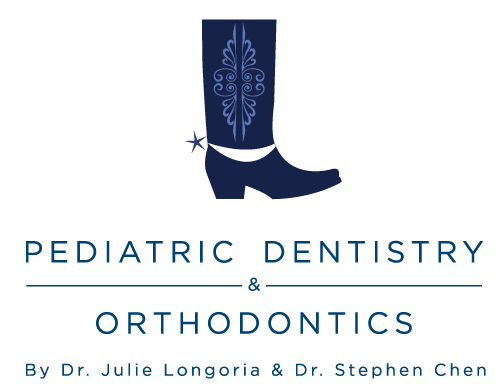If you’ve been bringing your kid to the dentist from a young age, chances are they’ve already gone to a pediatric dentist rather than a regular dentist. You might be wondering whether your teenager should visit a pediatric dentist or when it’s time to switch to an adult dentist now that they are older and have adult teeth. Every parent should think about this excellent question. Yes, we concur! There is no doubt that teenagers should keep visiting their pediatric dentist. This is why:
Teenagers are no longer children, but their mouth, face, and jaw are still developing and changing, and these changes may have an impact on their oral health. Pediatric dentists like Dr. Julie Longoria have received specialized training to address the special needs of adolescents and teens, from teaching good oral hygiene to potentially providing orthodontic treatment due to crowding of the teeth.
Top 4 Reasons Your Teen Should Still Visit a Pediatric Dentist
Teenagers develop throughout their adolescence.
Their jaw and face are still developing and changing even though all of their baby teeth have fallen out and been replaced by their permanent teeth. Pediatric dentists are specially trained to keep an eye on the development and changes because they are aware of this. Since their mouths have finished growing and developing by the time they are between the ages of 18 and 22, many young patients visit their pediatric dentist well into adulthood.
There may be a need for orthodontic services.
The teenage years are generally when a child will be considered for orthodontic treatment. Due to your teen’s continued growth, their jaw growth may not keep up with permanent teeth, which can cause issues with crowding and impaction. As your child’s permanent teeth erupt, there are very specific issues that a pediatric dentist will include in their evaluation. Tooth crowding, bite and teeth impaction are all going to be on a pediatric dentist’s checklist when seeing a teenager.
Problems with wisdom teeth in young adults
The third set of molars in the mouth, known as wisdom teeth, usually erupt between the late teens and early 20s. This can often cause pain, crowding, or even tooth decay. This region is challenging to keep clean, making it a place where bacteria can grow and cause cavities and gum disease. Pediatric dentists can aid in the early detection of problems or issues that may develop as the wisdom teeth erupt.
Independence and Responsibility
Although the teen years can be difficult, your children are ultimately learning how to take care of themselves and lead fulfilling, independent lives. We should take advantage of this time to teach teens how to make wise dietary decisions, teach them how to take care of their dental needs on their own, and help them get ready for the day when their parents will no longer be making decisions for them. Additionally, teens face special dental health challenges like a higher risk of sports injuries, diets high in sugar and carbohydrates, and the use of orthodontic appliances.
When teenagers turn 18, we advise them to start going to a general or adult dentist. By this point, they have typically stopped growing, had their wisdom teeth removed, undergone orthodontic treatment, and are more responsible for maintaining their own oral health.
At West U Pediatric Dentistry & Orthodontics, we make visiting the dentist easy for both parents and teens with a welcoming atmosphere and compassionate staff.


